Document_GEM: Monthly Briefing on the World Economic Situation and Prospects
Monthly Briefing on the World Economic Situation and Prospects
31 July 2019
Carbon pricing is a vital policy tool to address the unfolding climate crisis Amid rising global temperatures, drought forces Australia to import wheat for the first time in a decade Debt-for-climate swaps are an innovative development financing instrument
1 July 2019
ODA flows must increase to support SDG-related investment Regional integration in Africa and Asia is crucial for sustainable development China’s direct investment in Latin America slows
1 June 2019
Trade tensions and policy uncertainty are damaging global growth prospects Several countries continue to experience setbacks in their fight against poverty Carbon pricing a key element in combating climate change
1 May 2019
Many developed and developing economies take an easier monetary policy stance VAT increase in the Russian Federation temporarily adds to inflation Argentina imposes price controls to curb inflation
1 April 2019
Addressing youth employment remains a policy challenge, especially in Africa In North America, central banks pause interest rate rises despite tight labour markets Shortage of young workers prompts Japan to relax immigration policies
1 March 2019
Growing demand for leveraged loans may pose a new global financial risk; surge in African sovereign external bond issuance raises concern; China’s recent policy easing may further increase the domestic debt level
1 February 2019
WESP 2019 warns of rising climate risks to the world economy Parts of Africa and Latin America still experiencing very weak per capita income growth East and South Asia remain world’s most dynamic regions, but risks have increased English: PDF (178 kb) ...
21 January 2019
WESP 2019 highlights that economic progress remains highly uneven across the world Downside risks to the global growth outlook have increased Waning support for multilateralism may limit the capacity for collaborative policies in the event of a sharp g ...
3 December 2018
CO2 emissions expected to reach an historical high in 2018 The low cost of coal relative to alternative energy sources is slowing progress towards energy transition in many regions Phasing out coal use requires a reliable and stable alternative energy supply, plus support to the economic and employment transition in regions dependent on coal production

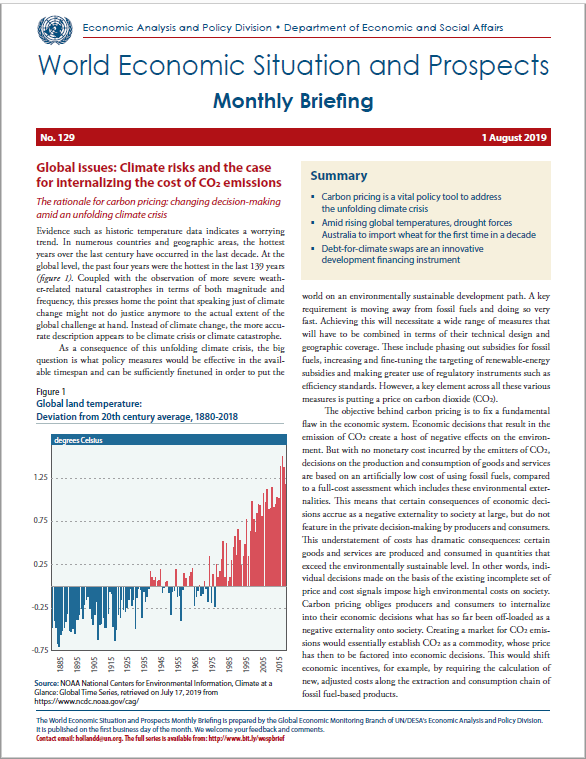
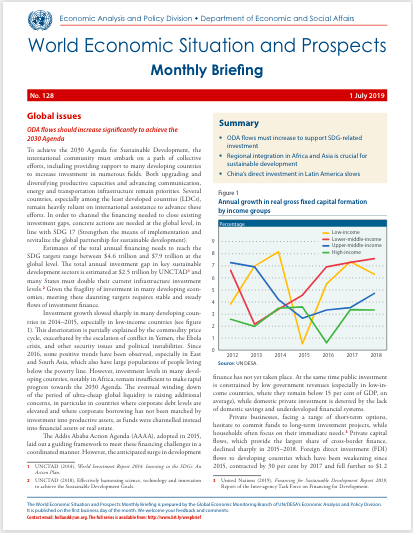
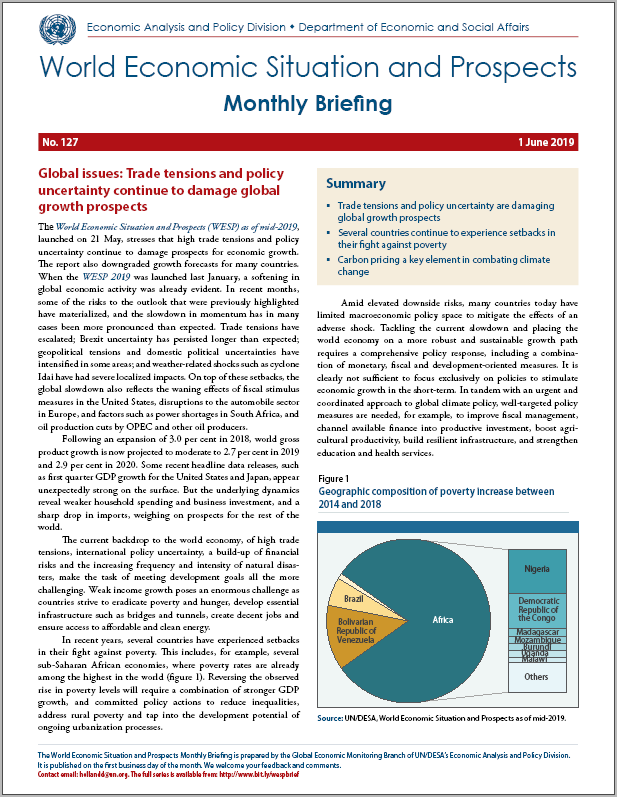
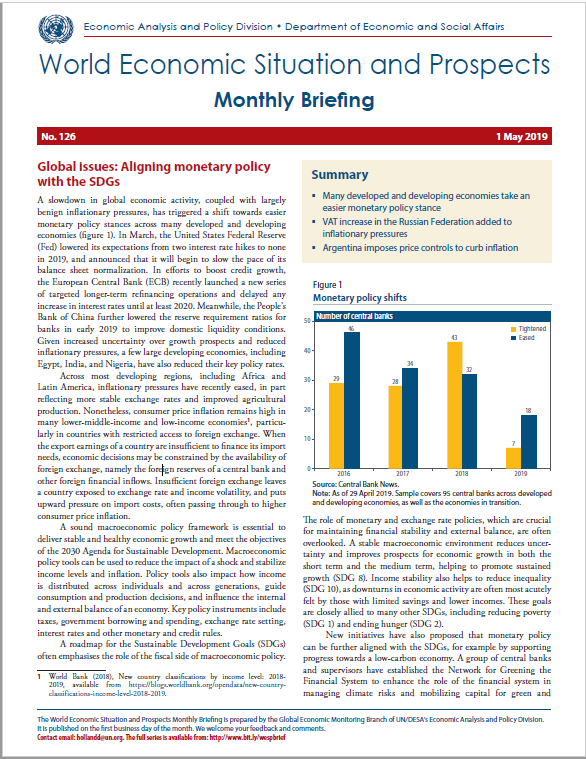




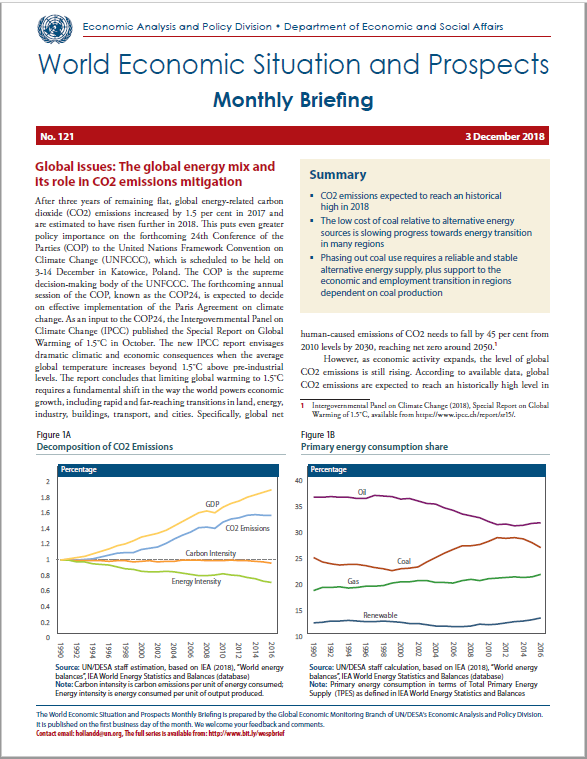
Follow Us